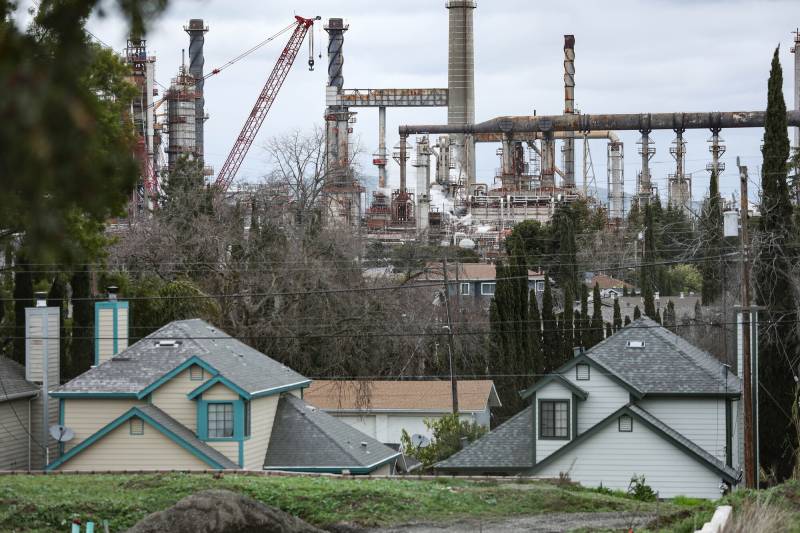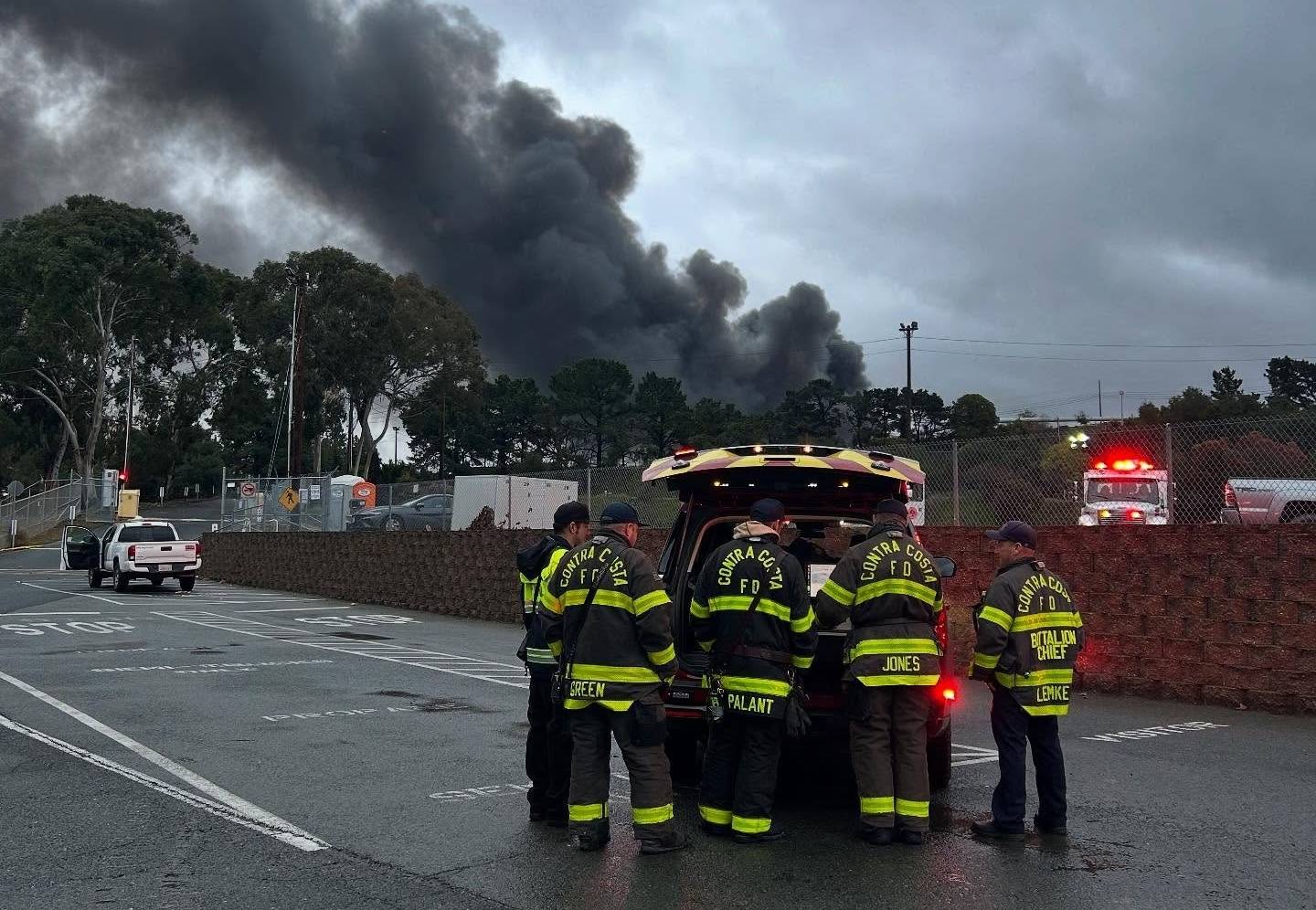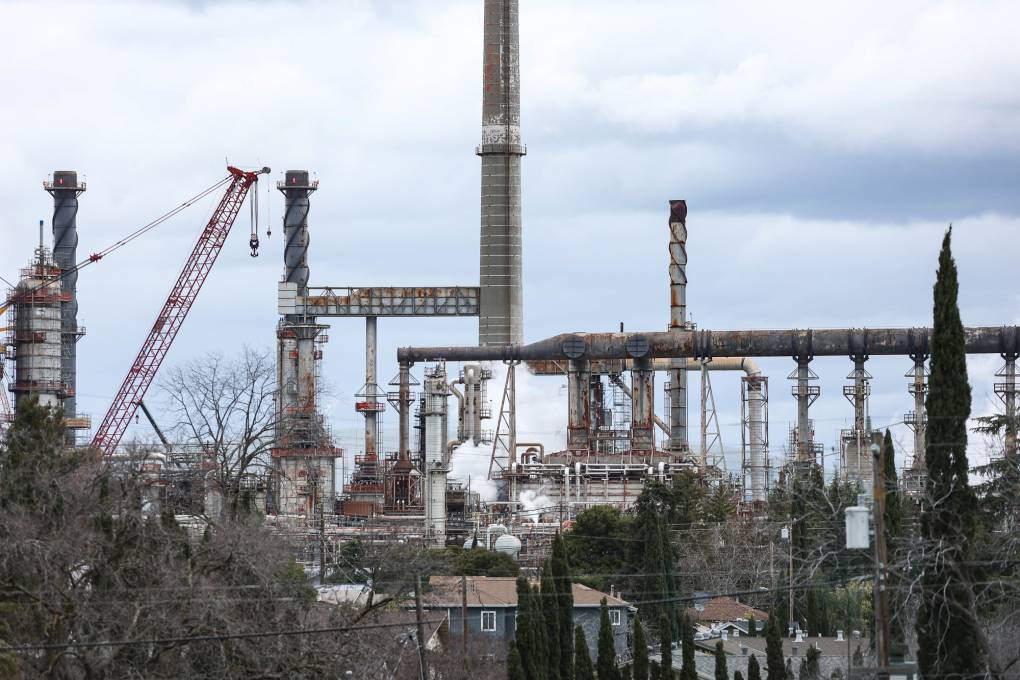Human error, worker inexperience and lack of supervision were at the root of early February’s massive fire at the PBF Energy refinery in Martinez, according to an independent investigation commissioned by Contra Costa County health officials that will be presented to the refinery’s oversight committee on Tuesday.
After starting on Feb. 1, the blaze burned for days, prompting a shelter-in-place advisory for surrounding neighborhoods. The subsequent two-month shutdown of the refinery, which produces more than 156,000 barrels of crude oil per day and accounts for nearly 10% of California’s total production, led to a surge in gas prices throughout the state.
According to the 21-page report by consulting firm JEM Advisors, the fire ignited when two contract union workers mistakenly loosened the bolts on a flange full of hot hydrocarbons during a routine but hazardous procedure called a turnaround, in which a piece of equipment or a processing unit is taken offline to be cleaned, inspected and repaired.



